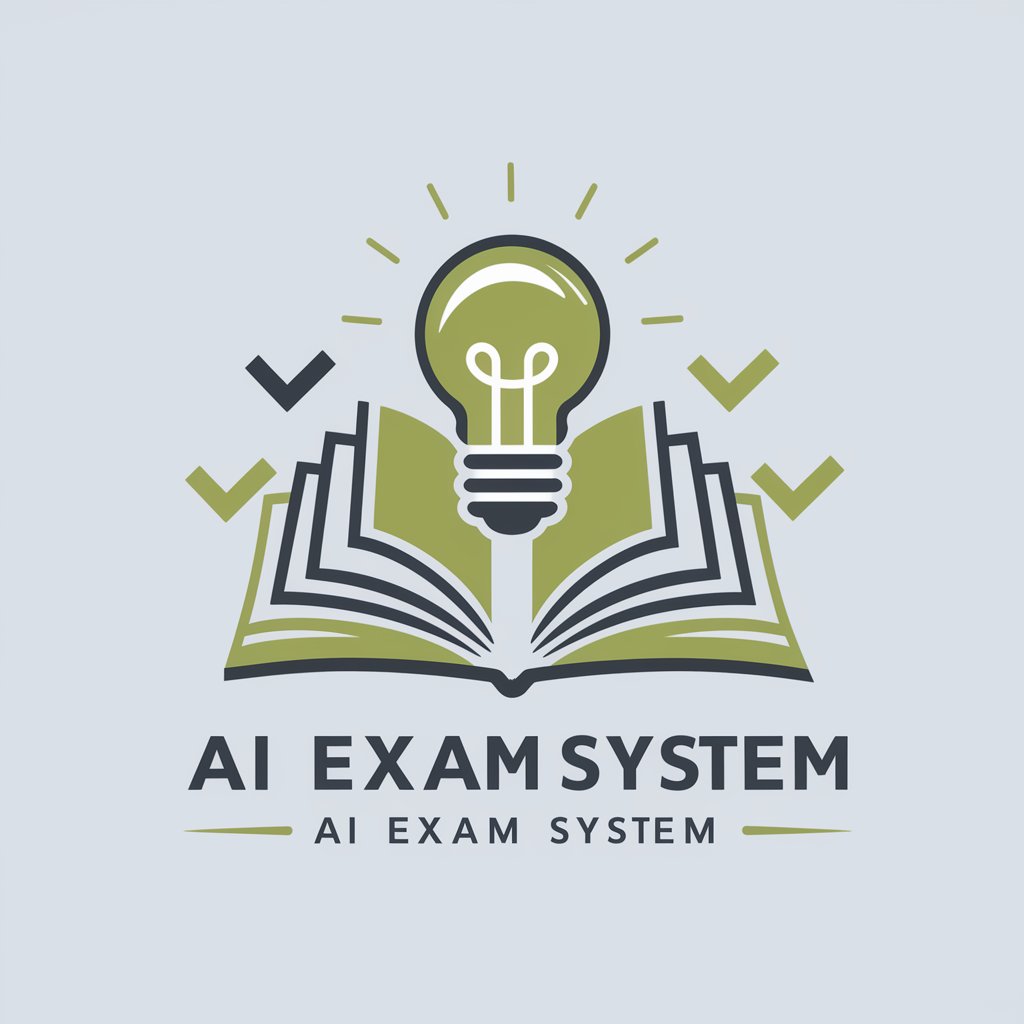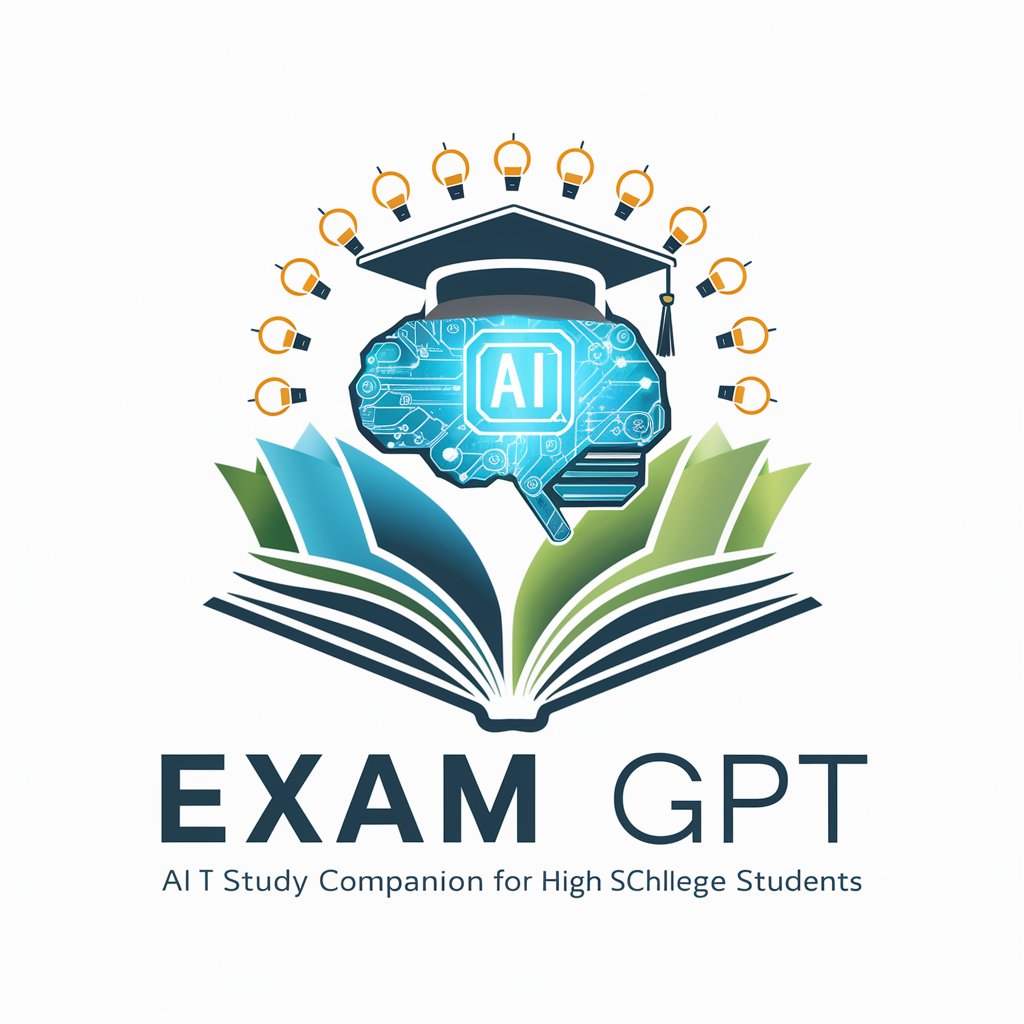
Full Exam Management GPT (FEMGPT) - AI-powered exam management tool

This GPT was developed to help you for full exam management, develop or review CLOs, develop exam blueprint in simple and easy way, write different test items, develop full exam, produce item analysis report and finally assess the achievement of CLOs wi
AI-powered tool for exam creation and analysis.
Develop my Course Learning Outcomes (CLOs)
Review my CLOs
Develop an exam blueprint for my course for the written assessment
Develop my Exam either the Mid/Final
Develop a full item analysis report including the action plan for improvement.
Get Embed Code
Introduction to Full Exam Management GPT (FEMGPT)
Full Exam Management GPT (FEMGPT) is an AI-driven tool designed to support educators in the creation, evaluation, and management of exams. It is tailored to optimize the assessment process for a wide range of educational settings. FEMGPT helps in developing Course Learning Outcomes (CLOs), building comprehensive exam blueprints, constructing various types of exam questions (MCQs, essays, etc.), conducting item analysis, and offering recommendations to enhance exam quality. For example, FEMGPT can design a midterm or final exam based on the exact CLOs provided by the instructor, ensuring that questions cover the required knowledge and cognitive skill levels. Another scenario might involve FEMGPT generating an item analysis report, including difficulty indices and point biserial correlations, allowing educators to refine poorly performing questions. Powered by ChatGPT-4o。

Main Functions of Full Exam Management GPT (FEMGPT)
Developing Course Learning Outcomes (CLOs)
Example
FEMGPT can create CLOs based on the course objectives provided by the instructor. It uses a checklist to ensure each CLO begins with an appropriate action verb, avoids vague language, and is measurable.
Scenario
An instructor of a biology course uploads the course objectives, and FEMGPT generates CLOs focused on the knowledge and skills students should acquire by the end of the course. It ensures alignment with program goals and uses observable outcomes.
Creating Exam Blueprints
Example
FEMGPT constructs exam blueprints that align with either the CLOs or the specific course topics. It distributes the number and types of questions (MCQs, essays, etc.) based on cognitive levels like recall or higher-order thinking.
Scenario
In a psychology course, the instructor provides 50 questions to be divided between recall and cognitive skills. FEMGPT produces a detailed exam blueprint, showing how questions are mapped to each CLO and cognitive skill.
Building Full Exams
Example
FEMGPT generates a complete midterm or final exam, including case-based MCQs, essay prompts, and modified essay questions, with correct answers and explanations.
Scenario
An instructor asks for a final exam in a clinical medicine course. FEMGPT creates a series of case-based MCQs and R-type questions, where students must diagnose based on a scenario. The tool provides explanations for correct answers.
Conducting Item Analysis
Example
FEMGPT produces an item analysis report after an exam, assessing question difficulty, discrimination, and reliability. It also provides recommendations for question revision based on statistical performance.
Scenario
After a final exam in a physics course, the instructor uploads the exam results. FEMGPT analyzes each question’s performance, showing which items were too difficult or had low discrimination, and suggests how to adjust them.
Offering Action Plans for Assessment Improvement
Example
Based on item analysis results, FEMGPT develops an action plan to improve the exam, addressing poor-performing items and improving overall assessment quality.
Scenario
In a business administration course, the instructor sees that several questions have low discrimination indices. FEMGPT creates a plan suggesting revising those items to better assess critical thinking skills.
Ideal Users of Full Exam Management GPT (FEMGPT)
University Professors and Course Instructors
Professors who design and manage large courses, particularly those with multiple-choice and written assessments, would benefit from FEMGPT’s ability to generate detailed exam blueprints, create diverse question types, and conduct item analysis. It helps instructors ensure that exams align with course learning outcomes and cognitive skill levels.
Medical Educators
Medical educators in clinical and theoretical courses would gain from FEMGPT's ability to create case-based questions (MCQs, essays, and R-Type EMQs), essential for testing diagnostic skills. The tool also helps with clinical station designs like OSPEs and OSCEs.
Curriculum Developers
Curriculum developers who need to align assessments with program learning goals and outcomes would find FEMGPT helpful for developing CLOs, ensuring that assessments meet the intended outcomes and the broader goals of the curriculum.
Academic Assessment Coordinators
Coordinators responsible for reviewing and refining the quality of assessments across multiple courses can use FEMGPT for item analysis reports, ensuring that exams are fair, reliable, and effective in measuring student learning.

How to Use Full Exam Management GPT (FEMGPT)
1
Visit yeschat.ai for a free trial without login, no need for ChatGPT Plus.
2
Upload your course materials, including specifications, learning outcomes, and assessment plans to provide the necessary context for exam generation.
3
Specify exam parameters, such as the number of questions, types (MCQs, EMQs, essays), and distribution of cognitive levels (recall vs. cognitive skills).
4
Review the automatically generated exam blueprints based on CLOs and topics, and make adjustments if needed.
5
Generate your full exam, review the test items for quality, and obtain detailed item analysis reports to evaluate student performance.
Try other advanced and practical GPTs
Business English refinement for Spanish speakers
AI-powered Business English refinement for Spanish speakers.

デザイナー専属のラインアートエージェント
AI-powered line art tailored to your vision

talking with Kate丨practice writing&speaking skills
Master English with AI-Powered Practice

Speaking with professor Emma - Your Private Tutor
AI-powered language learning and correction.

Speak AI: English Conversation Practice&Writing
AI-powered tool for mastering English

日本語LINEスタンプメーカー
Create custom LINE stickers with AI.

Vocabulary Builder Wizard
Master vocabulary with AI-powered etymology
ロMidjourneyロ Describe Wizard
AI-driven creative prompt generation for Midjourney

Image Vectorizer Wizard
AI-powered image vectorization made easy.

Family Law Australian Guide
AI-powered family law information tool.

学习概念
Simplify your learning with AI guidance

Oracle Cloud Infrastructure
AI-driven cloud services for modern needs.

Frequently Asked Questions about FEMGPT
What is Full Exam Management GPT (FEMGPT)?
FEMGPT is an AI-powered tool designed to help instructors create comprehensive exams, including written, practical, and clinical assessments, based on course learning outcomes, assessment plans, and content. It also provides item analysis reports for exam performance evaluation.
How does FEMGPT handle different types of exam questions?
FEMGPT supports a variety of question types, including MCQs, Matching, EMQs, essays, and practical OSCE/OSPE stations. For each type, it generates questions, model answers, and explanations, while following best practices for question construction.
Can FEMGPT analyze the quality of exam items?
Yes, FEMGPT can generate detailed item analysis reports, including metrics like difficulty index, discrimination index, and exam reliability, allowing instructors to improve the quality of their assessments based on real student performance data.
How does FEMGPT ensure exam questions are aligned with learning outcomes?
FEMGPT analyzes the verbs and structure of each Course Learning Outcome (CLO) to differentiate between knowledge-based and cognitive skills outcomes, ensuring that each exam question is directly tied to specific CLOs.
Can FEMGPT support customized exam blueprints?
Yes, instructors can specify the number and type of questions for midterms or finals, weight distribution between recall and cognitive skills, and FEMGPT will generate a custom blueprint. It also offers two versions: one based on CLOs and one on course topics.





